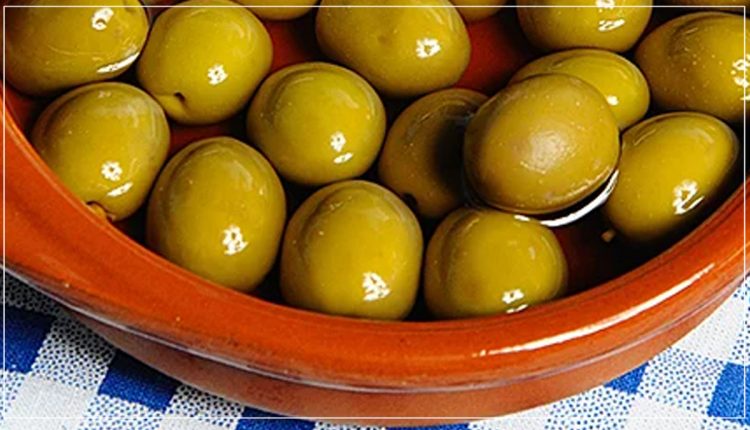
Olives – your one-stop remedy food
Obtained from the up to 100 years long lasting Olea europa trees, olives are a very special variety of fruits. They have a pit or a seed in their core which is covered by fleshy fruit. Such kinds of fruits are called drupes and are also inclusive of mangoes, plums and apricots to name a few.
Olea, which means oil, refers to the high amount of oils found in the fruit. Its trees are found mostly in the Mediterranean, African and Asian lands
Enjoyed widely as salad dressings, pizza toppings, added in pasta and various meat and poultry dishes, olives have a bang-on flavor which is appreciated all over the world. They are initially very bitter to taste, hence they have to undergo processing which makes sure their bitterness is reduced. They can either be kept in water for several weeks after harvest, which is called water curing, or they can be kept in a strong alkali solution such as potassium hydroxide or sodium hydroxide.
This technique to cure is called lye curing and very often, the solution has to be changed five to six times to ensure that the alkali has reached all the corners so as to ensure perfect curing of the fruit. Another way to cure them is brine curing, in which they are kept in strong salt solution. Greek style and Sicilian style olives are brine cured.
Not only do they taste fantastic, olives are known to have a strong association with health benefits. They, along with their leaves, have long been used traditionally as well as scientifically to extract those benefits.
AS OSTEOPOROSIS PREVENTION
They might by tiny, but olives are mighty and packed with phytonutrients which are of a great benefit to human health. Oleuropein and hydroxytyrosol are not only known to prevent cancer, but are also known to prevent the bone from losing its calcium. Osteoporosis is a condition commonly occurring is post menopausal women in which the bones begin losing their calcium. However, lab tests and studies have proved that increasing olive update would not only decrease the bone mass but would also increase the calcium content of the bone. Therefore, it should be taken on a regular basis by the women suffering from it.
ANTI-ALLERGIC PROPERTIES
Olives also have anti-allergic properties. The production of the hormone histamine is increased in our cells during an allergic reaction and this is the molecule which triggers off an inflammation in our cells. However, olives block the H1 receptors which are the main histamine receptors. With them being inhibited, the histamine response by a cell is lowered. This soothes the inflammation or the allergy.
LOWER THE RISK OF CVDs
Olives are rich in essential oils. However, it’s sad to note that they are not always appreciated for the oils that they contain. About 3/4th of the oil in an olive consists of oleic acid, which is a mono-saturated fatty acid, and little amounts of linoleic and alpha linoleic acid. Various researches and studies have shown that increasing the amount of mono saturated fatty acid in a diet (but without increasing too much overall fat in diet) the low density lipoproteins are found to be lower in ratio to high density lipoprotein. Also, the oleic acid once absorbed in the cells changes the signaling pattern of the cells such that high blood pressure is lowered. Hence the risk of cardiovascular diseases is lowered.
ANTI-OXIDATION PROPERTIES
Sometimes the healthy cells in our body begin to release unwanted problems owing to oxidative stress, which increases the chances of cell becoming more potentially unprotected from oxygen-related damage. This stress occurs due to low anti-oxidants supply. Olives not only provide phytonutrients, they also provide with antioxidants such as Vitamin E, selenium and zinc, which are other essential vitamins. Other phytonutrients, such as oleuropein, also decreases the oxidation of LDL as well as several other markers of oxidative stress. Olives also protect neurons from oxygen-related damage.
ANTI-CANCER PROPERTIES
The main root of cancer metastasize is chronic oxidation and chronic inflammation. As told earlier, olives reduce the levels of both of them thereby reducing the overall chances of cancer growing. Various studies have also been useful to prove that uvadol, oleanolic acid and erythrodiol – all found in olive oil extracts – are beneficial to lower chances of breast cancer. Furthermore, it also protects the DNA from oxygen-related damages.
ANTI-INFLAMMATORY BENEFITS
Olives are also reported to decrease the levels of leukotriene B4 (LTB4), which is a pro inflammatory molecule. Furthermore, inducible nitric oxide synthase (iNOS), an enzyme which works to increase unwanted inflammation, is also reduced by olive intake.
Olives are not just pretty to look at when garnishes on dishes, but are also immensely beneficial for human well being. Therefore, their intake should be increased in the diet as well as their oil usage.

